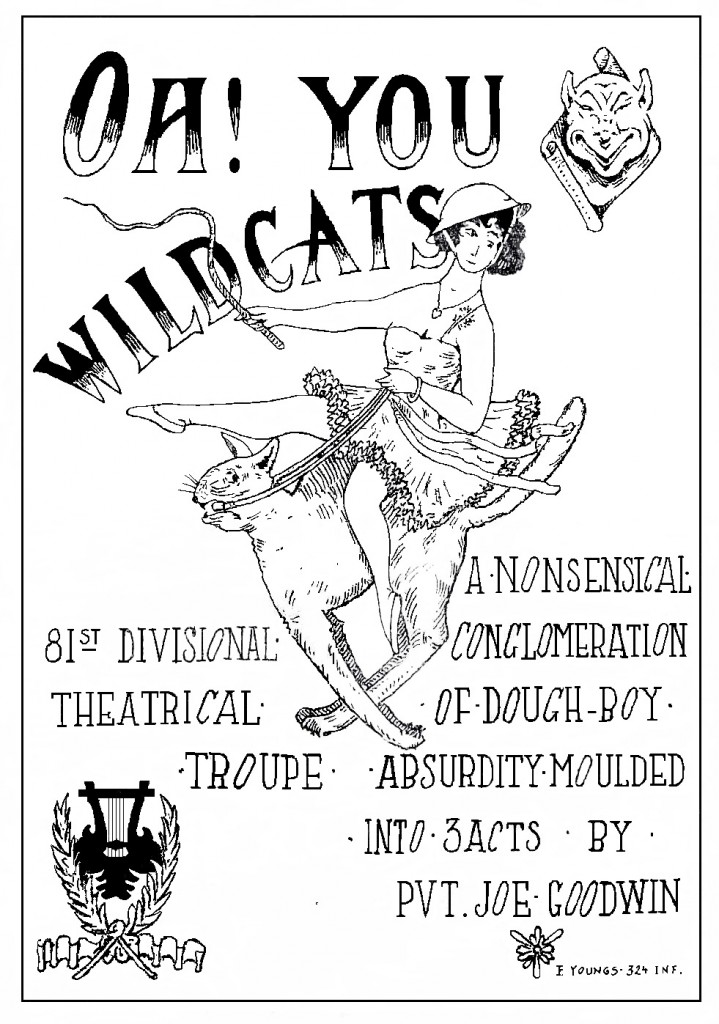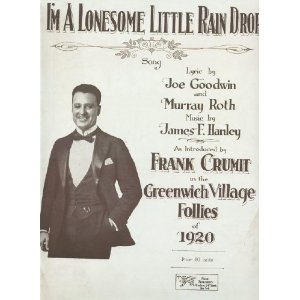By David "Chet" Williamson Sneade
 |
| Joe Goodwin's passport photo from the 1920s |
Although best known for writing the great American standard, "When You're Smiling," Joe Goodwin is largely an unknown tunesmith deserving much wider recognition.
He was born Joseph A. Goodwin in Worcester, MA and attended public schools. The middle initial of “A.” could possibly be Altschuler. His father was a German immigrant, Nathan Altschuler.
 |
| A dollar a dance floor, Worcester, MA |
Writing testimony for Goodwin in an affidavit for his American passport, his former agent H. Bart McHugh, stated, “As a producer I have booked Joe Goodwin in ‘kid acts,’ when he was about 12 years-old.”
 |
| The Olympia Theater on Pleasant Street |
Throughout his teen years, Goodwin performed as a monologist -- a solo artist who gives dramatic readings from works of literature, either as a poetry, monologue or soliloquy. He worked in a variety of musical troupes that toured the circuit during the Vaudeville era, all the while continuing to hone his craft as a developing songwriter.

Among his early work is “Billy" (For When I Walk), published in 1911, written with James Kendis and Herman Paley. First introduced by Billy Clifford, it became a vaudeville favorite. It was first recorded by the American Quartet, and later by singer Bonnie Baker with the Orrin Tucker Orchestra for Vocalion, reaching No. 10 on the pop charts of the day. In 1914, at the age of 25, Goodwin became a member of ASCAP (American Society of Composers, Authors and Publishers).
Goodwin also performed in USO shows at the time and wrote for London France
Returning
stateside, he worked as a talent agent and had his own publishing company. In
1919, Goodwin collaborated with Ballard MacDonald and James F. Hanley to write
“Breeze" (Blow My Baby Back To Me), a piece that Warren W. Vache
said, “has endeared itself to jazz musicians with its interesting and moving
melodic line and its hospitality toward improvisation. Illustrating this is the Bluebird recording by the irrepressible Wingy Manone.” The piece was also recorded by Clarence Williams, Leon Redbone, Al Hirt, and Al Hibbler, among others.
Evidently
Goodwin was a merry prankster. In 1920, fellow songwriter
Fred Fisher published a tune called “Daddy, You’ve Been a Mother to Me.” Music
writer Arnold Shaw in his book, The Jazz Age: Popular Music in the 1920s
retells the tale this way: “After Prohibition, the Globe Café on Broadway near 47th Street
According
to parlorsongs.com, Goodwin collaborated with “the best
that Tin Pan Alley had to offer including; George Myer, Al Piantadosi, Nat Ayer
and Gus Edwards." Among his other popular
works are “Tie Me To Your Apron Strings Again” (1925), “Baby
Shoes” (1916), "Three Wonderful Letters from
Home” (1918), “Everywhere You Go” (1927) and “Strolling
Through The Park One Day” (1929).
Hollywood
Over the years, Goodwin’s work has appeared in the repertoires of many jazz musicians from Bix Beiderbecke to Art Pepper. Although much of his lyrics appear on the surface to be dated and not relevant, Goodwin and his collaborators constructed architecturally strong pieces. If put in the hands of today’s creative artists, the quality of Goodwin’s work will hopefully be rediscovered and performed anew.
STANDARD:
“When You’re Smiling” (1928)
Writers:
Joe Goodwin, Mark Fisher, Larry Shay
Sung by
Louis Armstrong
Though it was first popularized by singer Seger Ellis in 1929 – making it all the way to #4 on the Billboard charts – it was, according to The Tin Pan Alley Song Encyclopedia writer Thomas S. Hishchak, “Louis [Armstrong] who made it a standard.”
Armstrong made three different recordings of the song, 1929, 1932, and 1956. Through the years it has been covered by a host of jazz greats including, King Oliver, Lester Young, Benny Goodman, and Art Pepper, and such singers as Billie Holiday, Frank Sinatra, Nat Cole, and Frankie Laine. It was a favorite of Dean Martin and Judy Garland who sang it regularly in concert and it appeared in variety of films, including King of Jazz, Cotton Club, and Swing High. It was the title track of Meet Danny Wilson sung by Sinatra and Frankie Laine sang the song in the film of the same name, When You’re Smiling.
“When You’re Smiling” (original recording), see: http://www.youtube.com/watch?v=-nD9g9ZYfnQ
RECOMMENDED
http://www.youtube.com/watch?v=8gOIYI1apjs
"Love Ain't Nothin' But the Blues" -- sung by the Boswell Sisters -- http://www.youtube.com/watch?v=g9v-SlOAr-c
"Love Ain't Nothin' But the Blues" -- sung by the Boswell Sisters -- http://www.youtube.com/watch?v=g9v-SlOAr-c
“Nobody
But You” – sung by Cliff Edwards (AKA Ukulele Ike) http://www.youtube.com/watch?v=H865uHF3WLg&feature=related
“The Breeze (Blow My Baby Back to Me)” – performed by Clarence Williams and his Orchestra -- http://www.youtube.com/watch?v=aMFafwmIs4A -- See: http://www.allmusic.com/album/wingy-sings-manone-plays-great-hits-mw0000098700 -- http://www.youtube.com/watch?v=aMFafwmIs4A
POPULAR
SONGS
“Billy
(For When I Walk)” – sung by Bonnie Baker with the Orin Tucker Orchestra --
http://www.youtube.com/watch?v=ElH1AUgyJ6M
http://www.youtube.com/watch?v=ElH1AUgyJ6M
“Gee, I
Hate To Go Home Alone” – sung by Billy Jones
“Hoosier
Sweatheart (Say Who?) – sung by Ruth Etting
“I’d Love
to Call You My Sweetheart” – sung by Johnny Marvin
“I’m Knee
Deep in Daisies” – sung by Whispering Jack Smith
“Your
Mother and Mine” – performed by the Dorsey Brothers http://www.youtube.com/watch?feature=player_embedded&v=eyCw6UIj-hc
“Brass Band Ephraham Jones” – sung by Al Jolson -- http://www.youtube.com/watch?v=XvKz5s6W3Eo
 |
| Bessie Love |
“Thing Like That”—sung by Bessie Love -- http://www.youtube.com/watcfeature=player_embedded&v=GXydupUGAwo#!
“Tie Me
To Your Apron Strings Again” – sung by Eddie Arnold
“Orange
Blossom Time” – sung by Cliff Edwards (AKA Ukelele Ike)
And, “All
I Want is You” (Charles Hart), “Baby Shoes” (Western Continentals), “I’m A
Lonesome Little Raindrop” (Frank Crumit), “Sentimental Rose” (Paul Whiteman)
“When I Get You Alone Tonight,” (Dick Robertson), “You Broke my Heart Just to
Pass the Time” (Henry Burr)
Other
songs written by Joe Goodwin include: “After All These Years,” “A Little Bit of
Sunshine,” “Anywhere, Everywhere, Always with You,” “At the Midnight
Masquerade,” “Barnyard Romeo,” “Can You Blame Me?” “Charlie, Gus, and Ike,”
“Chin Chin Chinaman,” “Coney Island Baby (We All Fall),” “Crosstown,” “Don’t
(Stop Loving Me Now),” “A Girlie Was
Just Made To Love,” “Goodbye Little Lady,” “He’s On A Boat That Sailed Last
Wednesday,” “How Can I Forget You?” “How Late Can You Stay Out Tonight,” “I’m
Afraid I’m Beginning to Love You,” “I’m Crazy About the Turkey Trot,” “I Never
Knew I Could Do A Thing Like That,” “In the Old Red School,” “It’s My Business
to Know Them All,” “I Waited A Lifetime for You,” “I Wanna Go Back (To Dear Old
Mother’s Knee),” “I Wonder What He’s Doing Now,” “Just A Thought of You,” “Kiss
Me Tonight,” “Leave Him Alone If He Leaves You,” “A Little Bit of Sunshine,”
“The Little House Upon the Hill,” “Lonesome Baby, I’m Coming Back to You,”
“Lookout Mountain,” “Love’s Sentence,” “Maybe That’s Why I’m Lonely,” “Melinda’s
Wedding Day,” “Minstrel Days,” “My Croony Melody,” “Naughty! Naughty!
Naughty!,” “One Day in June,” “Orange Blossom Time,” “Paul Revere (Won’t You
Ride for Us Again),” “The Ragtime Dream,” “Rolling in His Little Rolling
Chair,” “She May Be Doing the Same Thing as You,” “That’s How I Need You,”
“That’s The Son of Songs for Me,” “That Wonderful Something Is,” “Then I’ll
Stop Loving You,” “There’s A Light That’s Burning in the Window,” “There’s A
Vacant Chair,” “They’re Wearing ‘em High in Hawaii,” “A Thing Like That,” “When
You Play the Game of Love,” “When You’re Smiling,” “Wherever You Go, Whatever You Do,” “Your
Daddy Did the Same Thing Fifty Years Ago.”
Collaborators: Lou Alter, Paul Ash, Nat Ayer, Lew Brown, John Driscoll, Gus Edwards, Fred Fisher, Mark Fisher, E. Ray Goetz, Charles Grant, James Hanley, James Kendis, George A. Little, Ballard MacDonald, Joseph M. McCarthy, George Meyer, Herman Paley, Al Piantodosi, Murray Roth, Larry Shay, Jack Stanley, Emmett Sullivan, William Tracey, Nat Vincent, Leo Wood.
“I hear a tramp say, upon the highway, as he was tramping along; ‘Life is worthwhile, each time you smile.’ Then he started singing this song.” -- Joe Goodwin, the opening verse to “When You’re Smiling.”
Goodwin died at
DOB: June 6, 1889 (Worcester
DOD: July 31, 1943 (Bronx , NY)
This is a work in progress. Comments, corrections,
and suggestions are always welcome. Write to walnutharmonicas@gmail.com Also see: www.jazzriffing.blogspot.com















































No comments:
Post a Comment